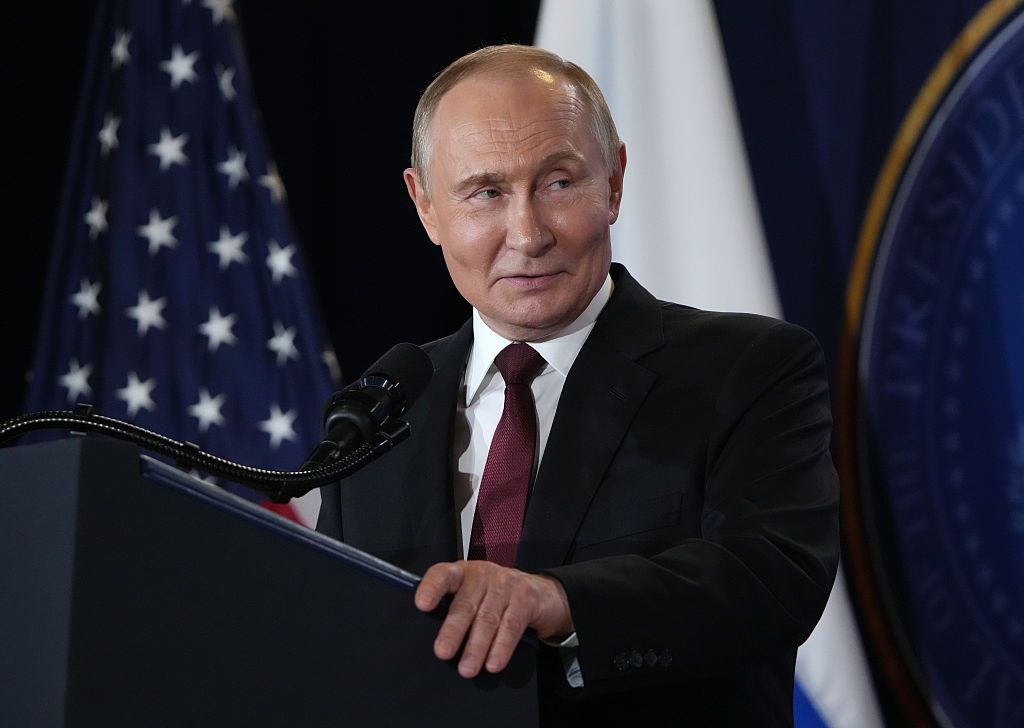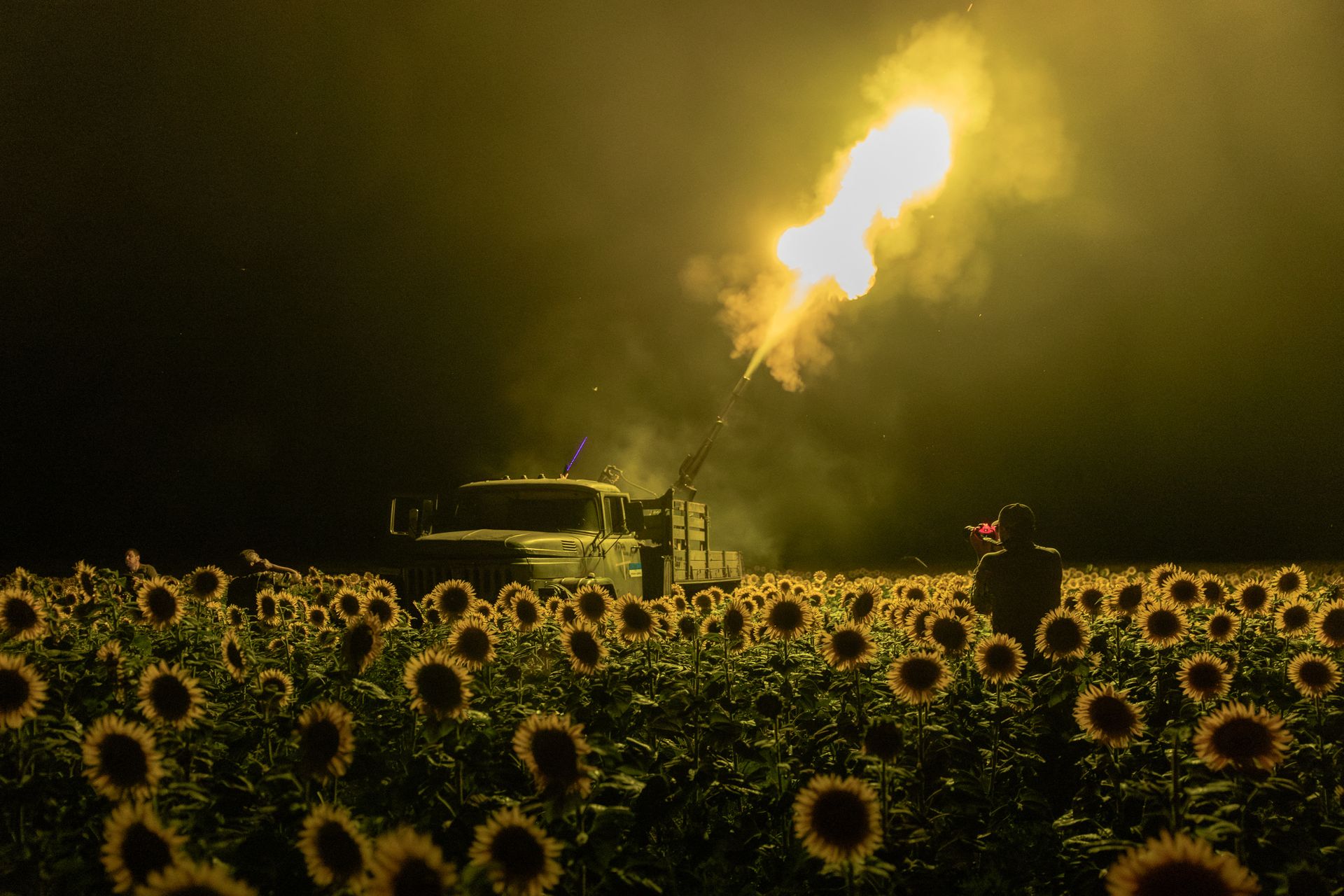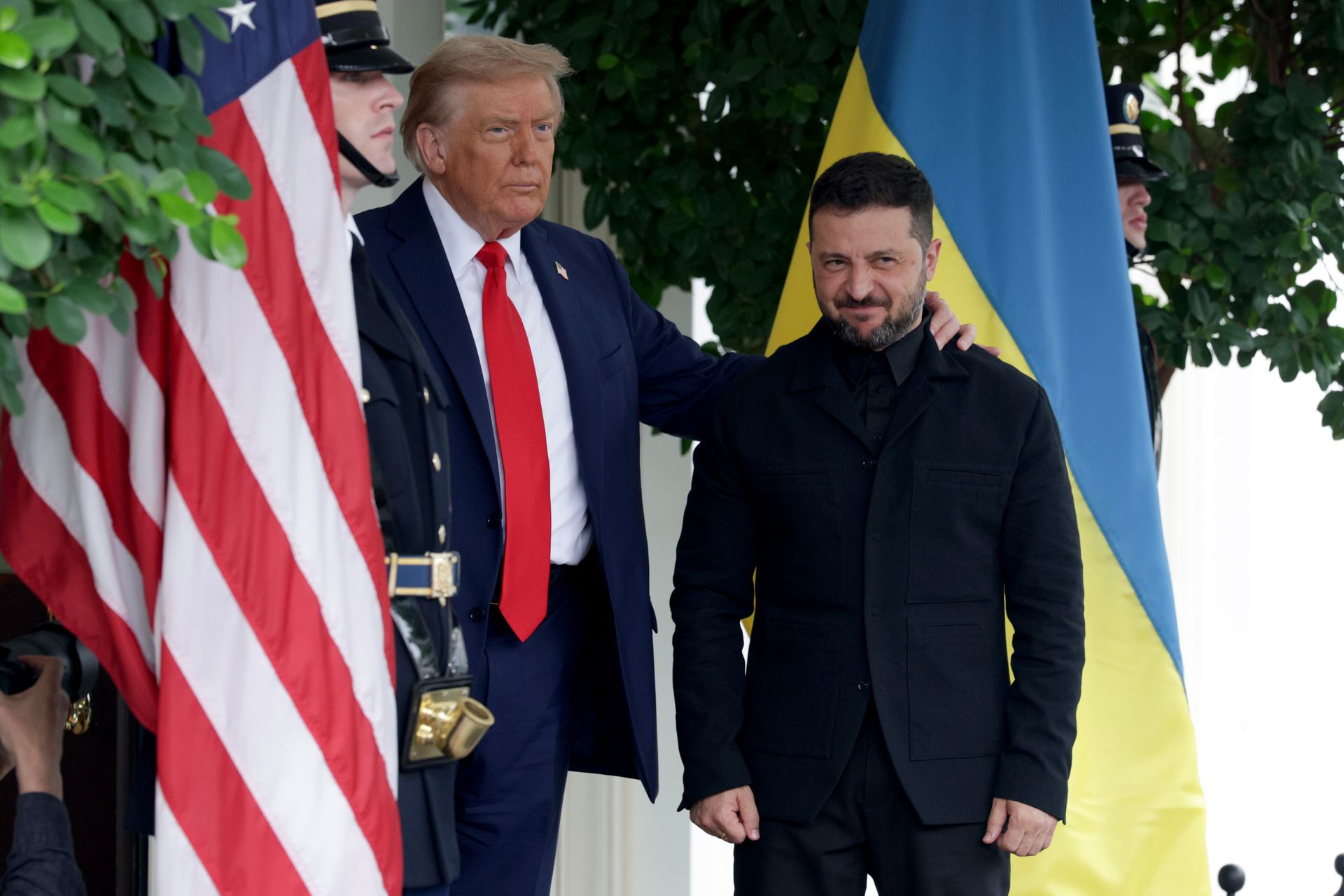Security guarantees for Ukraine explained: What's on the table and what's realistic?

U.S. President Donald Trump (R) walks with President Volodymyr Zelensky (L) and European leaders into the Cross Hall at the White House in Washington, D.C., on Aug. 18, 2025. (Tom Brenner for The Washington Post via Getty Images)
As peace talks to end the war in Ukraine gather speed toward a potential trilateral meeting between the U.S., Ukraine, and Russia, the question of what kind of security guarantees Kyiv might receive continues to loom over the flurry of diplomatic meetings.
After President Volodymyr Zelensky's Aug. 18 appearance at the White House, European leaders are now expected to draft a skeleton proposal for security guarantees over the next week, according to Kyiv Independent sources. The proposal will examine what Ukraine's allies are willing to commit to in order to prevent future attacks if a ceasefire or peace deal is reached.
In response to questions from reporters about security guarantees, Trump said after meeting Zelensky, "We'll give them (Ukraine) very good protection, very good security," without providing specifics.
For Ukraine and its allies, the starting point for any negotiations requires acknowledging that Russia's word cannot be taken at face value, given its long history of violating treaties and agreements. One of the proposals from Russia after Trump and Putin met in Alaska was for Russia to pass new legislation that would ban it from re-invading Ukraine, an offer observers see as questionable.
"Whatever some in the Trump administration may be suggesting, no credible security guarantees can ever again rely on Russian assurances," said Ruth Deyermond, a senior lecturer in post-Soviet security at King's College London.
"Russia has promised to respect Ukraine’s borders and sovereignty in the past — for example, when it signed the Budapest memorandum in 1994 and when Russia and Ukraine signed the 1997 Treaty on Friendship, Cooperation and Partnership — and then attacked and occupied Ukraine."
Opposing demands from Ukraine and Russia
Throughout the course of the war, Ukraine has remained adamant that strong and binding security guarantees from its partners are a necessary component of any peace deal. Zelensky has repeatedly called for his country's admittance into the North Atlantic Treaty Organization (NATO), which considers an attack on one member an attack on all members and includes major European nations as well as the United States.
NATO's powerful Article 5 clause does not, however, commit its members to full military intervention in the event of such an attack, instead calling on them to provide what they deem necessary to assist their partners.
At the same time, Russia has categorically rejected NATO membership or deploying European peacekeepers on Ukraine's soil, both seen as the strongest deterrents for future attacks.
"We cannot allow NATO's military infrastructure to get that close to our borders," Kremlin spokesperson Dmitry Peskov said in May.
President Emmanuel Macron said on Aug. 13 that Trump had also ruled out Ukraine's NATO membership, but said the United States is prepared to provide Ukraine with other security guarantees after peace is established.
Trump has also ruled out sending any U.S. troops to Ukraine.

During the recent talks, European leaders expressed strong support, however, for an "Article 5-style" guarantee backed by a group of European allies known as the "Coalition of the Willing." A plan of this sort would align with Trump's insistence that Europe bear the costs and responsibility for guaranteeing Ukraine's security, though its details are still unclear.
Most recently, Zelensky also proposed a plan to buy $90 billion worth of American weapons as part of security guarantees, in an attempt to appeal to the U.S. by tying Ukraine's defense to America's financial interests.
A range of proposals from genuine to meaningless
NATO membership is "the best and only genuine" security guarantee for Ukraine, said Ryhor Nizhnikau, a Russia expert at the Finnish Institute of International Affairs.
But with that off the table, the next best thing would be "a new security agreement by a group of committed Western allies that will envision the presence of European troops on the ground, and include a set of clear and unconditional provisions such as long-term financial and military support," he said.
Nizhnikau expressed doubt, however, that Europe's current proposal is feasible given Russia's refusal to reach a ceasefire, or that Russia would actually agree to any Article 5-style agreement.
"Unwillingness to offer Article 5 is the main reason why even opening the NATO accession process for Ukraine has been denied since 2022. Secondly, it obviously contradicts Russia's core demands," he said, noting that growing Western engagement with Ukraine has been one of Putin's justifications for the invasion.
"What Europe can credibly offer is not security guarantees, but more of the same: more money and military support for Ukraine," Nizhnikau added.
Peter Layton, a military expert at the Royal United Services Institute, said a realistic proposal could be the deployment of logistical support units to western areas of Ukraine, away from the front line, and drone patrols over eastern Ukraine and the Black Sea.

A continuing supply of arms and equipment, and assistance to build up a self-sufficient Ukrainian defense industry, are other potential security guarantees that might be more likely to be on the table, Layton said.
Regarding one concession from Russia touted by U.S. envoy Steve Witkoff — a potential offer by Russia to enshrine its its legal code not to violate Ukraine or other European countries' sovereignty — "such legislation would be meaningless and could be altered overnight," Layton said, noting that Russia's criminal code already banned planning, preparing, unleashing, or waging an aggressive war, which didn't prevent its invasion of Ukraine.
"These concessions are just meaningless, and it is likely there is no intention to uphold them. They are just noise."
'An enormous amount to be worked through'
James Shea, a defense and security expert at Chatham House, argued that the way to avoid the failures of the Budapest Memorandum is "western troops permanently on the ground in Ukraine, backed up by naval forces in the Black Sea on a rotation basis, and western air and missile defense."
But the original design for the Coalition of the Willing only planned for only around 10,000 to 20,000 troops, focused on training the Ukrainian army, he noted.
"If we are now seriously talking about an Article 5 NATO-type force, the planning assumptions of the Coalition will need to be totally changed, (requiring) a new planning process for a much larger and heavily armed force," Shea said. "Who will do this planning?"

Even if a more coherent plan is formed, key questions still remain, Shea added, including whether Moscow can be convinced to let NATO forces into Ukraine if they are not under a formal NATO command, and whether a future Article 5-style arrangement will include nuclear guarantees or a commitment of all its participants to defend Ukraine if Russia attacks again.
"There is an enormous amount of extremely important detail that has to be worked through here, if security guarantees are to be credible and effective," Shea said.
"And, I am certain that once negotiations begin, Russia will interpret the concept of security guarantees very differently from the Coalition of the Willing, and the U.S."













